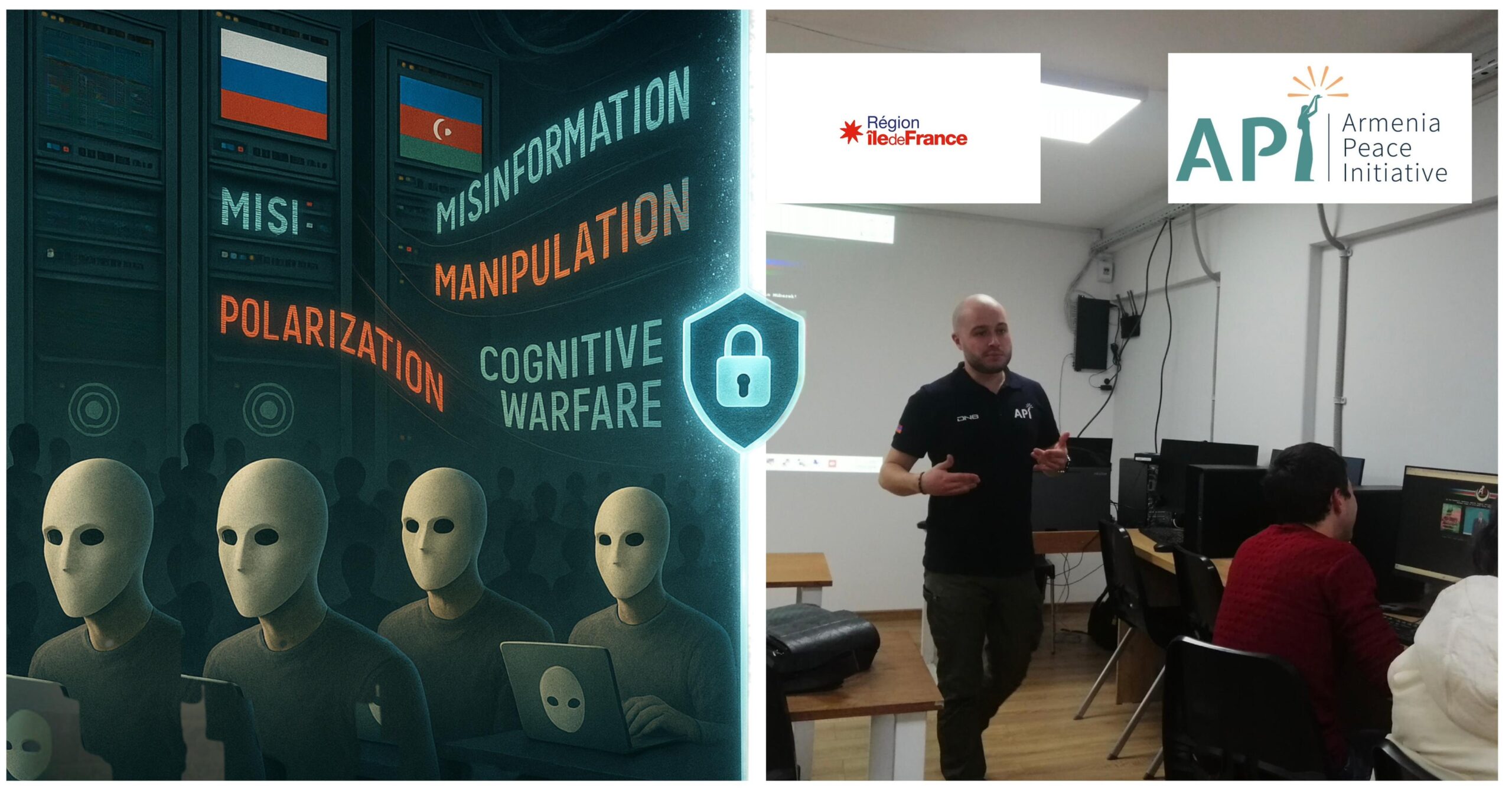Originally published in French on May 7, 2025

At a time when information warfare is redefining the balance of power between states, multiplying the levels of players involved, and when geopolitical conflicts are gaining in intensity in a deregulated international order, digital influence campaigns are emerging as political instruments in their own right. Russia, long a master of the art of cognitive influence, is skilfully exploiting the resources offered by social networks to step up its mind control operations against its adversaries, both in Europe and among the former Soviet countries over which it wishes to regain or retain its hold. Although a more recent entrant on the digital disinformation scene, Azerbaijan is making rapid progress in this area.
Since 2022, the French-speaking digital sphere has been increasingly targeted by manipulation operations orchestrated from abroad. On the one hand, from Moscow, in the context of the war in Ukraine, with the aim of changing public perceptions of this war. Baku has stepped into the breach for its own purposes: in the context of the conflict with Yerevan, and noting France’s support for Armenia’s territorial integrity and its condemnation of the military aggression committed by Baku on the soil of the Republic of Armenia in 2022, Azerbaijan has embarked on a campaign of influence against French interests. In relation to the size of the country, Azerbaijan’s policy in this area can be said to be both intrusive and aggressive. State agencies in democratic societies, such as Viginum in France, have their work cut out to monitor and expose these mind control operations. We will recall the Viginum report published in December 2024 on the coordinated influence campaign conducted by the Baku Initiative Group (BIG), a propaganda entity affiliated to the Azerbaijani state. The aim of this operation was to destabilise public opinion in France, particularly in the overseas French territories and Corsica, by exploiting pro-independence discourse and colonial memories through a network of fake accounts on the X platform (formerly Twitter). Although Viginum has mocked the failure of this campaign (dubbed ‘UN-notorious BIG’ in the report), vigilance is still called for.
In Armenia, the approach of the parliamentary elections, due in a year’s time, makes it palpable that Moscow – and its local relays – are stepping up their mental manipulation efforts to influence Armenian public opinion. An article published on Vedomosti.ru on 30 April 2025 reports that Sergey Kirienko, deputy director of the Presidential Administration of the Russian Federation since 2016, has been given the task of ‘looking after Armenia’. With his strong experience in Russian disinformation and destabilisation operations, Kirienko’s other recent portfolios included Abkhazia, South Ossetia and Moldova. He is said to have been entrusted with two particular missions in Armenia : firstly, to counter the ‘increasingly Western leanings of the Armenian leadership, which are unacceptable to Russia’; and secondly, to introduce ‘pro-Russian politicians into the electoral landscape’ to replace the old clique of Kocharian and Sargsyan, who are so detested by Armenian society that even Moscow no longer dares to bet on them.
At the same time, Google’s Threat Analysis Group (TAG) has documented an explosion in pro-government Azerbaijani YouTube channels by the thousands in 2024. These channels glorify Ilham Aliyev’s regime, attack political opponents and denigrate Armenia using automatically generated content: fake accounts, coordinated comments, manipulated narrative content aimed at maintaining fear within Armenian society. There are certainly more effective ways of doing this, but Armenia does not yet have its own Viginum.
These hybrid offensives, combining geopolitical storytelling, algorithmic technologies and the manipulation of fears and dissension existing within any society, illustrate the way in which certain regimes try to shape public opinions in opposing countries. Destabilisation techniques use existing weaknesses or elements of polarisation in the target society to accentuate them, sow doubt about facts, create confusion about value relationships – the aggressor and the aggressed in a war, for example – and thus undermine the mobilisation resources of the target country.
Against this backdrop of growing information pressure, the vulnerabilities of Armenian society are all loopholes that make it possible to wage a “soft” war, that can achieve tangible results without having to run the risks of a conventional war. In addition to responses from state actors, via national strategies, dedicated agencies and regulations (which are slow and difficult to impose on platforms), a response through educating societies is also necessary. This is why, in Armenia, the Armenia Peace Initiative (API) has been training local people in cyber security since 2023. In the spring semester of 2025, API conducted its 4th cybersecurity training session in partnership with UFAR and the 2nd in partnership with Relq, to address social vulnerabilities and professional shortcomings.
